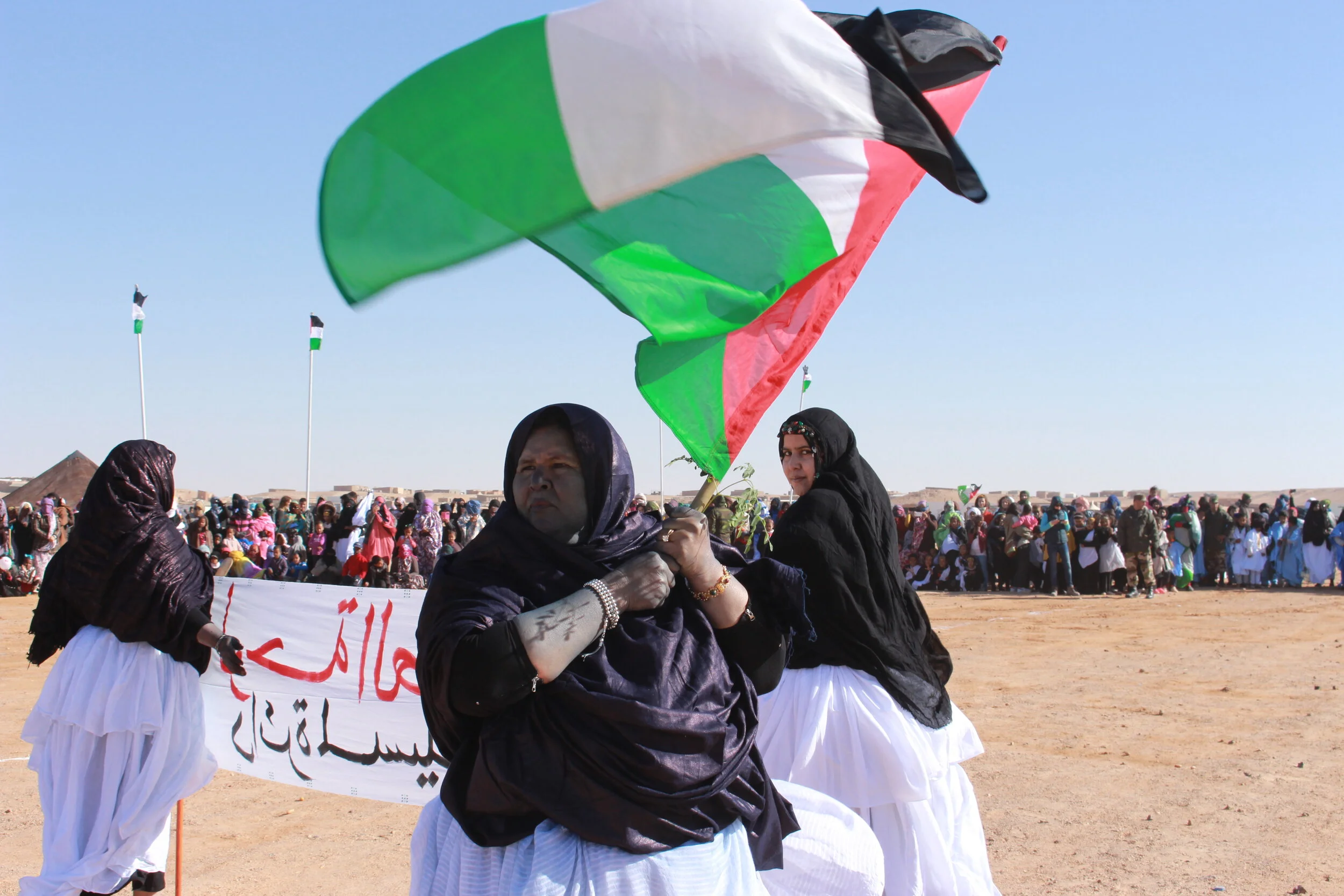Home | Our Story | What We Do | Where We Work | The Saharawi | Contact Us

Conflict Over Western Sahara.
The borders of Western Sahara were originally established during the period of colonization when portions of Africa were divided among the most powerful European nations. Originally referred to as Spanish Sahara, Spain controlled the territory from 1884 to 1975. Originally a nomadic people from the Sahara Desert, the Saharawi were confined within the borders of the Spanish Sahara during the European colonization of Africa.
In 1957, a newly decolonized Morocco made the claim that the colony was rightfully theirs, but Spanish forces succeeded in repelling Morocco’s military advances into the territory. In 1960, Mauritania also laid claim to the territory. The land became even more desirable when huge phosphate deposits were discovered in the region in 1963.
Two years later, the United Nations began pressing for the decolonization of Spanish Sahara, and by the 1970s, a growing dissatisfaction among the Saharawi (the indigenous inhabitants of the region) led to the formation of the Polisario Front (Popular Front for the Liberation of Saguia el-Hamra and Río de Oro). Faced with the growing Saharan independence movement and mounting pressures from the United Nation, Spain declared its official withdrawal from the region in 1975. Despite its promise to the Saharawi people to provide military protection during the transition of power and in spite of the UN World Court ruling in favor of Saharawi sovereignty, Spain brokered a back door deal with Morocco and Mauritania. This effectively partitioned the northern two thirds of the region, which contained the valuable phosphate mines and profitable coastal fisheries, to Morocco and the southern third to Mauritania.
As Spain withdrew from the region later known as Western Sahara, King Hassan II led 350,000 of his Moroccan civilians into the territory, and after the “green march” of citizens, he ushered in the Moroccan army to enforce his control. Fighting erupted between the Saharawi people and the Moroccan army, and Saharan refugees began fleeing to refugee camps in Algeria and later, Mauritania.
Backed by Algeria, the newly formed Polisario continued to wage war against the Moroccans to the north and the Mauritanians to the south. When Mauritania bowed out of war in 1979, Morocco quickly seized the southern third of Western Sahara. The fighting continued for a total of sixteen years with the Polisario Front successfully implementing a guerrilla style of fighting that nearly bankrupted Morocco.
In the 1980s with financial support from the United States and France, Morocco constructed a 1,700-mile, fortified sand berm running the entire length of Western Sahara to prevent Polisario forces and Saharawi refugees from crossing freely into the Moroccan-control territory of Western Sahara. Both Moroccan and Saharawi forces planted unmapped land mines along the berm, which the Saharawi people refer to as “the Wall of Shame.”
In 1991, the United Nations negotiated a ceasefire agreement between Morocco and the Polisario Front. The agreement was contingent on a referendum in which the Saharawi people would vote on whether they wanted to remain under Moroccan rule or establish their own independence. Unfortunately, Morocco never allowed the referendum to take place, and Moroccan rule of Western Sahara has continued to the present day.
Timeline of events from BBC’s profile of Western Sahara:
The following timeline adapted from “Western Sahara profile” by BBC
1884 - Spain colonizes Western Sahara, an area formerly populated by nomadic tribes.
1934 - Becomes a Spanish province known as Spanish Sahara.
1957 - Newly-independent Morocco lays centuries-old claim to Western Sahara.
1965 - The UN calls for the decolonization of Western Sahara.
1973 - Polisario Front, the indigenous Saharawi independence movement, is founded.
1975 - Morocco's King Hassan defies a Hague ruling in favor of Saharawi rights to self-determination and stages the "Green March" of 350,000 Moroccans into Western Sahara. Spain withdraws.
1975-76 - Morocco annexes two-thirds of Western Sahara after colonial power Spain withdraws. Polisario guerrillas declare the Saharan Arab Democratic Republic (SADR), with a government-in-exile in Algeria. Thousands of Sahrawi refugees flee to western Algeria to set up camps near the town of Tindouf.
1975-91 - Polisario Front fights a 16-year-long guerrilla war against Moroccan forces, which ends with a UN-brokered cease-fire.
1979 - Mauritania withdraws, leaving Morocco to annex its share of the territory.
1991-2000s - UN brokered cease-fire ends war but Morocco has yet to hold an agreed referendum on independence. Numerous UN-sponsored talks have failed to yield a breakthrough.
2016 - Long-term leader Mohamed Abdelaziz Ezzedine dies.
2020 - The ceasefire between Morocco and the Polisario is broken as both parties renew hostilities.










